The Department of Electronics and Communication Engineering (ECE) vision is to produce quality professionals in Electronics and Communication Engineering to compete globally and excel by carrying out basic and applied research in emerging areas by forging strong industry-institute interaction. The broad and multidisciplinary thrusts of the Department have proved to be significant in meeting the demands of the industry. In the Department of ECE, each faculty is engaged in imparting the best knowledge to students. The wide variety of courses is taught by highly qualified and experienced faculty who also are researchers in their specialized domain. The Department has specialists from the fields of Device Electronics, Signal Processing, Microwave Devices, Antenna, Communication, Embedded Systems, Internet-of-Things and VLSI Design. The curricula are rigorously designed while keeping the industrial demands in mind. Well-equipped laboratories along with extensive practical work ensure the student receives a well-rounded education. The Department has adequate academic as well as research infrastructure which includes the latest equipment and software tools in laboratories. We have state-of-the-art laboratories to provide hands-on experiences and support research activities.
Vision Statement:
To create an educational environment to mould the students to meet the challenges of modern Electronics & Communication industry through state-of-the-art technical knowledge and innovative experimental approaches.
Mission Statement:
- To create learning, development and testing environment to meet ever challenging needs of the Electronic & Communication industry.
- To create entrepreneurial environment and industry interaction for mutual benefit.
- To become a global partner in training human resources in the fields of signal processing, communication engineering, chip design, instrumentation and networking.
- To associate with internationally reputed Institutions for academic excellence and collaborative research.
Head of the Department
Name: Dr. Shekhar Yadav
Mobile No.:9415165678
Email Id.:shekharyadav0001@gmail.com
Programme Educational Objectives (PEO)
PEO1: To have the capacity to solve industry problems with the help of software, testing, and design.
PEO2: To develop the ability to apply the fundamentals of science, engineering, and mathematics to solve engineering problems.
PEO3: The ability to work as a team member and leadership skill.
PEO4: To prepare graduates to involve in research, higher studies and to become entrepreneurship in long run.
Program Specific Outcomes (PSO)
PSO1: Apply effective knowledge of the electronics and communication engineering domain in the context of environmental & social concerns.
PSO2: Graduates will demonstrate their knowledge in the design and experimentation of electronics and communication engineering systems.
PSO3: Graduates will be motivated for continuous life-long learning along with leadership skills.
Program Outcomes (PO)
The students in the Electronics Engineering course will attain:
- Engineering Knowledge: Apply the knowledge of mathematics, science, engineering fundamentals, and an engineering specialization to the solution of complex engineering problems.
- Problem Analysis: Identify, formulate, review research literature, and analyze complex engineering problems reaching substantiated conclusions using the first principles of mathematics, natural sciences, and engineering sciences.
- Design/ Development of Solutions: Design solutions for complex engineering problems and design system components or processes that meet the specified needs with appropriate consideration for the public health and safety, and the cultural, societal, and environmental considerations.
- Conduct Investigations of Complex Problems: Use research-based knowledge and research methods including design of experiments, analysis, and interpretation of data, and synthesis of the information to provide valid conclusions for complex problems.
- Modern Tool Usage: Create, select, and apply appropriate techniques, resources, and modern engineering and IT tools including prediction and modelling to complex engineering activities with an understanding of the limitations.
- The Engineer and Society: Apply reasoning informed by the contextual knowledge to assess societal, health, safety, legal and cultural issues, and the consequent responsibilities relevant to the professional engineering practice.
- Environment and Sustainability: Understand the impact of the professional engineering solutions in societal and environmental contexts, and demonstrate the knowledge of, and need for sustainable development.
- Ethics: Apply ethical principles and commit to professional ethics and responsibilities and norms of the engineering practice.
- Individual and Team Work: Function effectively as an individual, and as a member or leader in diverse teams, and in multidisciplinary settings.
- Communication: Communicate effectively on complex engineering activities with the engineering community and with society at large, such as being able to comprehend and write effective reports and design documentation, make effective presentations, and give and receive clear instructions.
- Project Management and Finance: Demonstrate knowledge and understanding of the engineering and management principles and apply these to one’s own work, as a member and leader in a team, to manage projects and in multidisciplinary environments.
- Life-long Learning: Recognize the need for, and have the preparation and ability to engage in independent and lifelong learning in the broadest context of technological change.
___________________________________________________________________
Faculty Details
Name :Dr. Shekhar Yadav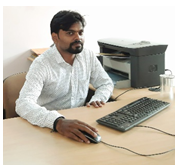
Designation : Assistant Professor
Department : Electronics and Communication Engineering
Qualification : Ph. D.
Phone :9415165678
Email ID :shekharyadav0001@gmail.com
Area Of Interest : Microstrip Antenna and DRA
Short CV Link:
___________________________________________________________________
Name :Dr. Anshika Srivastava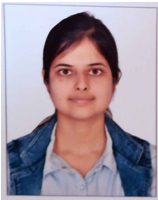
Designation : Assistant Professor
Department : Electronics and Communication Engineering
Qualification : Ph. D.
Phone :7905622286
Email ID :anshikasrivastava@mnnit.ac.in
Area Of Interest : Semiconductor Devices/ Materials and their Processing, VLSI Design, Modeling and Simulation of Semiconductor Devices.
Short CV Link:
___________________________________________________________________
Name :Dr. Abhishek Kumar Saroj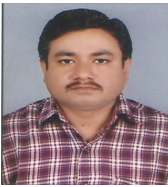
Designation : Assistant Professor
Department : Electronics and Communication Engineering
Qualification : Ph. D.
Phone :9455418708
Email ID :saroj.dsmnru@gmail.com
Area Of Interest : Smart Antenna, SMD Integrated Antenna, 5G & 6G IoT Devices, PCB Fabrication, Embedded System, Control Systems, EMT and Microwave.
Short CV Link:
___________________________________________________________________
Name : Mr. Anil Gaur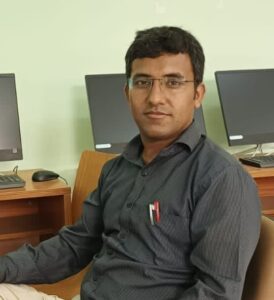
Designation : Assistant Professor
Department : Electronics and Communication Engineering
Qualification : M. Tech, Pursuing Ph. D.
Phone : 7252847701
Email ID : a.gaur84@gmail.com
Area Of Interest : VLSI Design, Digital Communication
Short CV Link:
___________________________________________________________________
Name :Ms. Neelam Kumari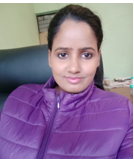
Designation : Assistant Professor
Department : Electronics and Communication Engineering
Qualification : M. Tech
Phone :9457912191
Email ID :neelam91gangwar@gmail.com
Area Of Interest: VLSI Design, Semiconductor Devices
Short CV Link: